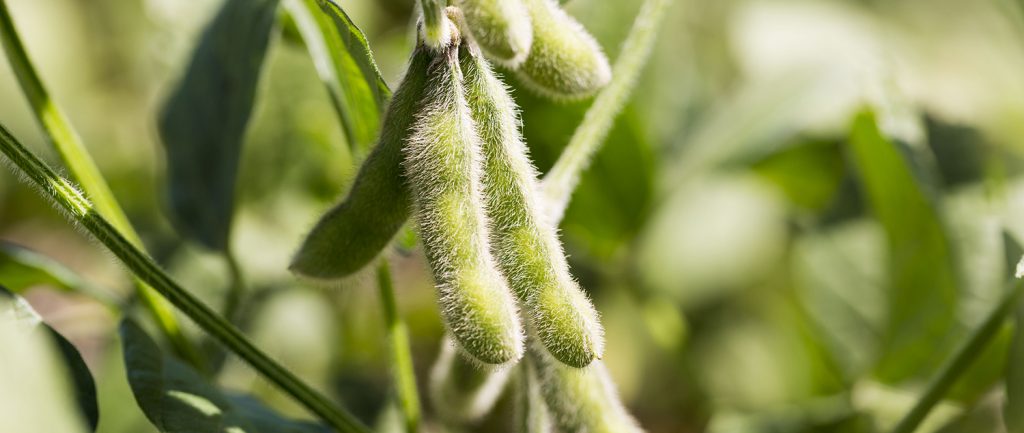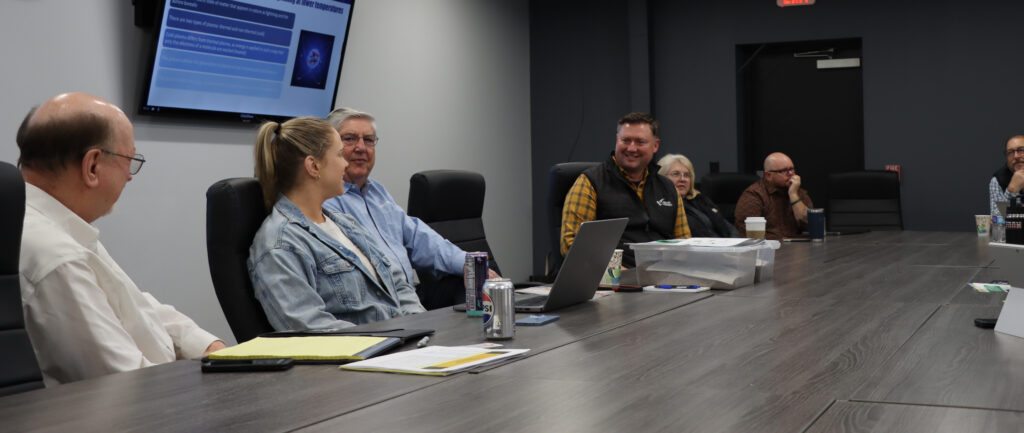With 42 years of farming under his belt, Rob Hanks, District 9 representative for the Minnesota Soybean Research & Promotion Council (MSR&PC), knows a thing or two about agriculture. Hanks and his brother run a diverse farming operation of cattle, hogs, corn, soybeans and hay in southeast Minnesota. In addition to serving as MSR&PC’s District 9 representative, Hanks participates in the production and new uses committees.
Hanks has a wealth of experience with the Minnesota soybean checkoff – he has been on the MSR&PC board for nearly 20 years and was elected chairman in 2007. In addition to his state checkoff experience, Hanks has served nine years on the United Soybean Board (USB). Hanks strongly believes the state and national checkoff helps farmers overcome challenges soybean farmers face in their fields, and helps add value to their crop.
“The checkoff touches every aspect of Minnesota soybeans, from genetics to export markets,” says Hanks, who’s also a member of the Mower County Corn and Soybean Growers board. “We also partner with organizations that drive soybean innovation.”
One of the partners MSR&PC works closely with to drive demand for soybeans is the Agricultural Utilization Research Institute (AURI). AURI is a state legislative-funded organization that finds industrial and food uses for a variety of products. An example of the partnership with AURI is RePLAY™ Agricultural Oil Seal and Preservation Agent, a soybean oil-based road sealant that is used on roads across the country. RePLAY not only adds value to farmers’ soybean crop, but the product also helps extend the life of Minnesota roads.
“As a board, when we’re deciding where to invest checkoff dollars, we always put the farmer first and think about how our investments help their bottom line,” Hanks says. “We continue to work with AURI because of the value-added products that come out of the partnership, specifically RePLAY.”
In addition to RePLAY creating more demand for Minnesota soybeans with what we apply to our roads, biodiesel has helped use the surplus of soybean oil for the vehicles we drive.

“As we all know, a major new use – which actually isn’t new – is biodiesel,” Hanks said. “Minnesota was the first state to require the use biodiesel in 2002, and it has continued to improve since then. It is an exciting time for Minnesota soybean farmers with the B20 mandate approaching in spring 2018.”
When processing biodiesel, only the oil portion of the soybean is used, leaving all the protein available to nourish livestock and humans. Minnesota is now moving forward with the 20 percent biodiesel blend (B20) mandate, requiring Minnesota diesel fuels to contain at least 20 percent biodiesel in the summer months.
Throughout his time on the council, Hanks has seen progressive growth of the soybean industry.
“I’ve been on the council for 19 years,” Hanks says. “We’ve gone from producing about two million bushels of soybeans, to this year nearing about 4.3 billion bushels. It’s been amazing to be part of that progression.”






